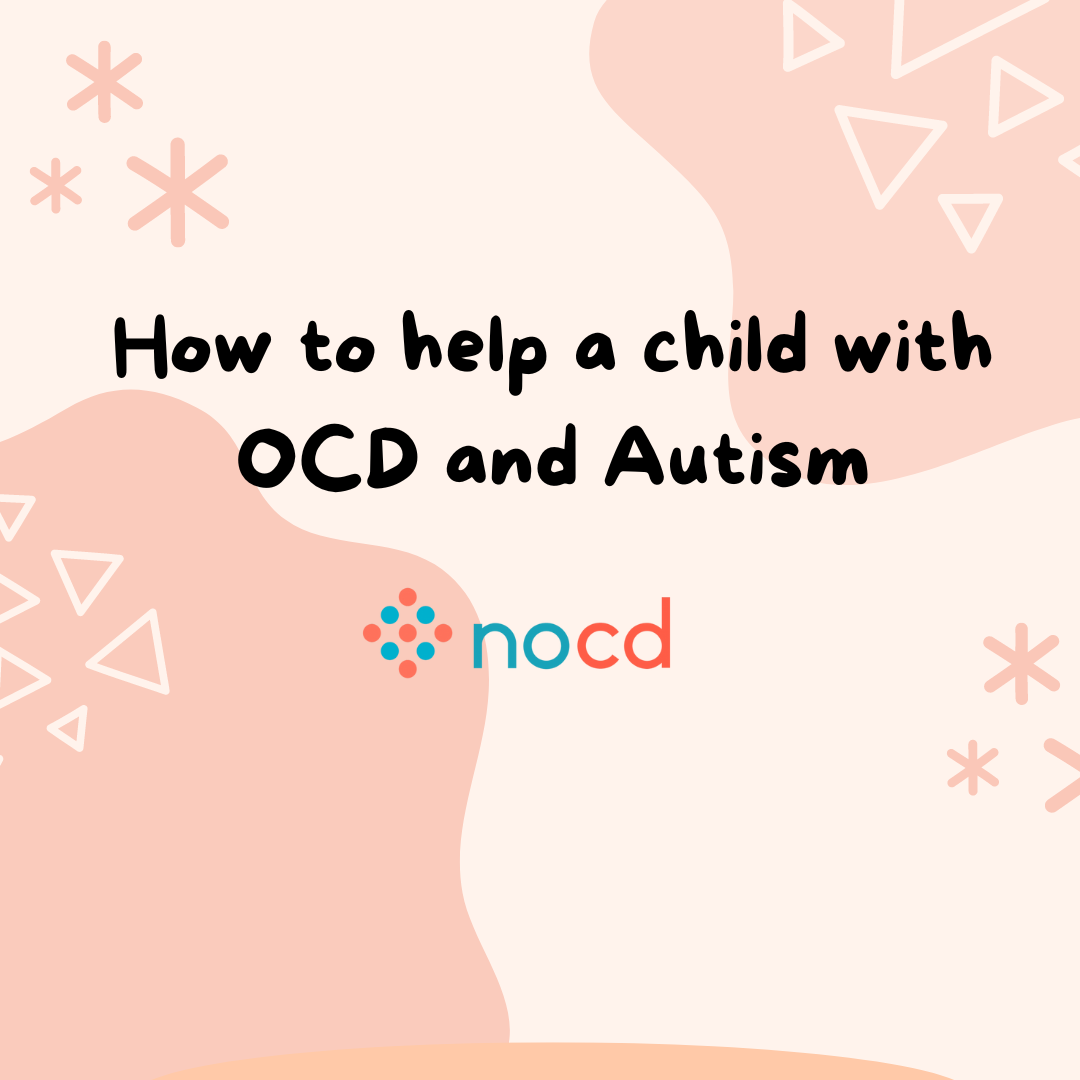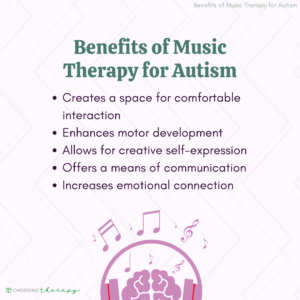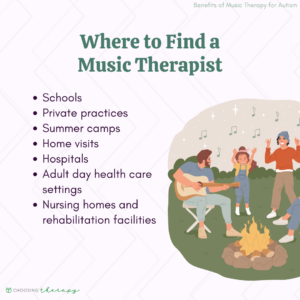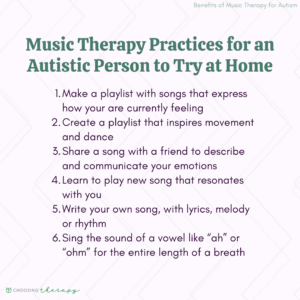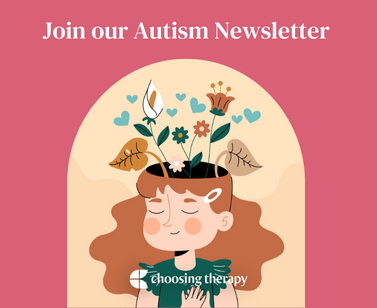Music therapy can provide many therapeutic benefits for an autistic person, including helping them build verbal or nonverbal communication tools, enhance motor skills, and increase emotional connection with others. Music is a natural language that autistic people can utilize as a tool for processing emotions and a means of expression.
Neuropsychological Testing For Children Get answers in weeks, not months. Bend Health provides a complete neuropsychological report with in-depth findings, reviews with your school or pediatrician, along with a clinical diagnosis (if applicable). Plus, receive recommendations to support your child at home, in the community, and in the classroom. Learn more Choosing Therapy is compensated for marketing by Bend Health.
What Is Autism?
Autism is a neurodevelopmental difference which influences the way a person perceives and interacts with the world around them. Through the lens of neurodiversity, autism can be viewed as having a different type of “operating system.” Autistic individuals tend to have sensory differences, monotropic focus on the things that interest them, and they may utilize verbal and non-verbal communication differently than neurotypical folks.9
Autism is more frequently diagnosed in boys, but that is often because the diagnostic criteria for autism was based on how autism was observed to present in boys. More recently, the clinical understanding of autism is expanding to include more diverse presentations, and the field is catching up to gain a more complete picture of how autism presents in women, girls, and gender-diverse individuals.
According to current diagnostic criteria, a person with autism will experience:
- Communication Differences: Autistic individuals interact with others differently. Some autistic folks are non-speaking, may use limited spoken speech, or prefer non-verbal communication in the form of sign language, letter boards, AAC (augmentative and alternative communication device), or typing. Some autistic folks may use speech differently, and communicate in the form of scripting, or may have idiosyncratic speech. Some may interpret words by others in a very literal way and benefit from clear and direct communication, while others may enjoy sarcasm.
- Non-verbal Communication Differences: Non-verbal communication often looks different for autistic folks as well. There may be a different use of facial expressions, gestures, body language, or tone of voice. Some autistic people might use limited eye contact because they may experience eye contact as overwhelming or painful.1
- Sensory Issues: Differences in sensory processing are a common component of the autistic experience. Some autistic folks may experience more sensory sensitivities, while others may fit a more sensory-seeking profile. It is also common for sensory-sensitive and sensory-seeking characteristics to be present within the same individual.
- Special Interests: Autistic folks can become deeply absorbed in the areas that interest them. Special interests can be a great source of joy, and a way of connecting with others who may share our particular interest. Autistic individuals are sometimes described as “monotropic,” and according to autistic self-advocate James Ward-Sinclair, able to “become intensely preoccupied with whatever we have set our minds to.”9
- Stimming: Autistic stimming, also often referred to as repetitive or stereotypic behaviors, includes repetitive movements like hand flapping, rocking, repeating words or phrases, or listening to the same song on repeat.1 Stimming is a way of managing sensory input to keep calm in complex sensory environments. Stimming helps to reduce stress and prevent sensory overload and meltdown.
Current Approaches for Autism Support
When seeking therapeutic approaches to support an autistic individual, the most helpful approaches are neurodiversity-affirming approaches that will identify any needs or challenges that may be present, and provide support which build on their natural strengths. Therapeutic approaches that attempt to change, “fix,” or “correct” autistic traits to make the individual appear more neurotypical can be incredibly damaging.
Current approaches for autism support include:
- Occupational Therapy (OT): Because sensory differences are a common component of the autistic experience, working with an OT can be instrumental to identify any sensory needs that may be present. The OT can then help create a “sensory diet,” and offer suggestions for sensory adaptations within the environment, which will help to meet the sensory needs of the individual. Occupational therapists can also assist in the areas of fine motor skills, and activities of daily living.
- Speech Therapy: Some autistic folks may benefit from support related to speech and communication. The primary goal of speech therapy is always communication, not necessarily spoken speech. A speech and language pathologist (SLP) can help the individual find a method of communication that is most comfortable for them, whether that is spoken speech, an AAC device, sign language, letter boards, or typing.
- Physical Therapy: Physical therapy can offer support in the areas of gross motor skills, balance, coordination, and building strength. As some autistic folks have co-occurring dyspraxia or low muscle tone, a physical therapist can be helpful to identify areas of struggle and provide support in these areas as needed.
Resources For Autism Sensory Enrichment Program For Autism – Boost brain development to give your child more tools. Top 5 areas of improvement reported are Attention, Sleep, Sensory Processing, Eating, and Social Skills. Learn More Pediatric Mental Healthcare For Autism Spectrum Disorder (ages 1 -17) Bend Health does not provide ABA Therapy. Bend Health is a virtual-first mental health care provider caring for kids, teens and their families. Build skills and routines that support your whole family with coaches, therapists and psychiatrists. For parent’s, Bend offers monthly progress updates and a peer support community. Many insurance plans are accepted. Learn More Neuropsychological Testing For Children (including evaluations for Autism Spectrum Disorder, ADHD and Learning Disorders) Get answers in weeks, not months. Bend Health provides a complete report with in-depth findings, review with your schools, and a clinical diagnosis (if applicable). Learn more
What is Music Therapy?
Music therapy is an evidence-based therapy that uses music, tempo and rhythm to help people improve their physical and emotional well being. It can help reduce anxiety, improve memory, manage pain, and promote joy.6 Music therapy is becoming increasingly common, and therapists are now found working alongside doctors, nurses, and all environments where healing happens.
Music therapy began as a formal therapeutic modality after World Wars I and II, when musicians visited veterans hospitals to play music as a way of helping to alleviate effects of trauma endured by those who had experienced war. The music had such a positive impact on the patients’ physical, mental and emotional health that the medical teams requested the hospital hire musicians to play for patients regularly. Music therapy programs were then created to give musicians the clinical training needed to most effectively support the patients they worked with.
Types of music therapy experiences include:
- Improvisation: During improvisation, the client creates music spontaneously, often alongside the therapist, to facilitate expression of the client’s emotions. Improvised music can be vocal or instrumental, and can include melody, rhythm, lyrics and sounds.4 Improvising music can be a helpful method of expressing emotion as an alternative to spoken communication.5
- Re-Creation: The therapist plays music that the client then re-creates. The music can be sung or played on an instrument. Re-creation can be helpful to develop fine motor skills and memory.5
- Composition: The client, along with support from the therapist, creates their own piece of music to express their thoughts and feelings. Compositions can be instrumental or vocal, and this method can be helpful to develop creativity, build self-esteem and confidence, and process powerful emotions.5
- Reception: The client listens to music played by the therapist, and then responds with expression of their own thoughts or emotions through words, movement, or music.5 The therapist and client may discuss lyrics and their meaning for the client.6 Receptive music therapy can have a calming effect, and can help to reduce anxiety.5
5 Benefits of Music Therapy for Autism
For many autistic folks, expression through music may feel more natural than expression and communication through speech. Many autistic individuals possess great musical skill and ability, including a perfect pitch or ability to play music by ear. Some autistic individuals may be highly skilled in the areas of singing, playing musical instruments, or composition.
Here are five benefits of music therapy for autism:
- Creates a space for comfortable interaction: Playing or creating music can provide a means of interaction, connection and community that may feel more comfortable or natural for autistic folks than spoken conversations. Music therapy can help a client explore and identify what types of interaction and communication feel most comfortable and effective for them.
- Enhances motor development: Music therapy can help to enhance fine and gross motor skills through playing instruments, copying rhythms, or movement and dance.5
- Allows for creative self expression: Music therapy offers the client a means of self-expression that goes beyond the spoken word. Music provides an avenue to express oneself through lyrics, melody, movement, and rhythm.
- Offers a means of communication: Music can help the autistic client find ways of communicating thoughts or feelings that might not require words, or utilizes words in a way that feels comfortable.
- Increases emotional connection: Through music, a client may find a way of connecting with, and processing their emotions in a way that feels right for them. The client may also utilize music to share and describe their emotions, and connect with others.5
Sensory Enrichment Program For Autism & Parent Training Mendability has developed an evidence-based, clinically-validated therapy to make living with autism simpler and more comfortable. Boosting brain development gives your child more tools. Top 5 areas of improvement reported are Attention, Sleep, Sensory Processing, Eating, and Social Skills. You can enroll your child in the program, or receive training to help your child. Learn More
Where to Find a Music Therapist
When looking for a therapist who specializes in music therapy for autistic individuals, it is helpful to seek a clinician who is neurodiversity-affirming. Sessions with a music therapist may be in-person or remote, and typically cost anywhere from $75-$300 per session, depending on the location, experience, and practice of the particular therapist. Some therapists may take health insurance or offer sliding scale fees.
Music therapists can be found in both inpatient and outpatient settings, and are commonly employed in settings such as:6
- Schools
- Private Practices
- Summer Camps
- Home visits
- Hospitals
- Adult Day Health Care Settings
- Nursing Homes and Rehabilitation Facilities
Music Therapy Practices to Try at Home
Music therapy does not need to end the moment you step out of your session. The tools you learn in therapy can be carried with you throughout your day and utilized when you are feeling overstimulated or unable to express yourself.
Some music therapy exercises to try at home include:
- Make a playlist with songs that express how your are currently feeling7
- Create a playlist that inspires movement and dance8
- Share a song with a friend to describe and communicate your emotions7
- Learn to play new song that resonates with you7
- Write your own song, with lyrics, melody or rhythm
- Sing the sound of a vowel like “ah” or “ohm” for the entire length of a breath8
Final Thoughts
Music therapy is a powerful clinical modality which can offer so many benefits to clients on the autism spectrum. Music can help autistic individuals to access, process, and communicate their emotions in a way that goes far beyond language alone, and can provide connection and support to help them thrive as their authentic selves.
To help our readers take the next step in their mental health journey, Choosing Therapy has partnered with leaders in mental health and wellness. Choosing Therapy is compensated for marketing by the companies included below. Sensory Enrichment Program For Autism Mendability – Boost brain development to give your child more tools. Top 5 areas of improvement reported are Attention, Sleep, Sensory Processing, Eating, and Social Skills. Learn More Neurological Testing Neuropsychological Testing For Children (including evaluations for Autism Spectrum Disorder, ADHD and Learning Disorders) Get answers in weeks, not months. Bend Health provides a complete report with in-depth findings, review with your schools, and a clinical diagnosis (if applicable). Learn more Online Therapy & Coaching (ages 1 -17) Bend Health is a virtual mental healthcare provider caring for kids, teens, and their families. Many insurance plans are accepted. Learn More Autism Parenting Magazine Are you looking for the most up-to-date news and professional guidance for you and your child on the subject of autism? Get A Free IssueAdditional Resources
How to help a child with OCD and Autism If you have an autistic child, they might exhibit some behaviors that look similar to compulsions in OCD, like having to wear certain clothes, lining up toys in a certain way, or engaging in specific routines & rituals. OCD rituals, aka compulsions, can look similar to the repetitive behaviors common in Autism, as a 2011 study found that about 17% of people with an Autism Spectrum Disorder (ASD) also meet criteria for OCD.